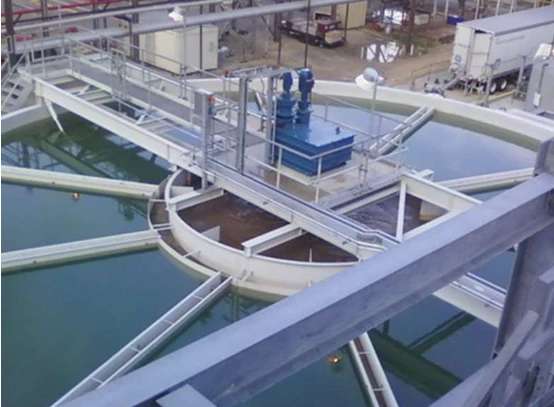
-
 Afrikaans
Afrikaans -
 Albanian
Albanian -
 Amharic
Amharic -
 Arabic
Arabic -
 Armenian
Armenian -
 Azerbaijani
Azerbaijani -
 Basque
Basque -
 Belarusian
Belarusian -
 Bengali
Bengali -
 Bosnian
Bosnian -
 Bulgarian
Bulgarian -
 Catalan
Catalan -
 Cebuano
Cebuano -
 China
China -
 China (Taiwan)
China (Taiwan) -
 Corsican
Corsican -
 Croatian
Croatian -
 Czech
Czech -
 Danish
Danish -
 Dutch
Dutch -
 English
English -
 Esperanto
Esperanto -
 Estonian
Estonian -
 Finnish
Finnish -
 French
French -
 Frisian
Frisian -
 Galician
Galician -
 Georgian
Georgian -
 German
German -
 Greek
Greek -
 Gujarati
Gujarati -
 Haitian Creole
Haitian Creole -
 hausa
hausa -
 hawaiian
hawaiian -
 Hebrew
Hebrew -
 Hindi
Hindi -
 Miao
Miao -
 Hungarian
Hungarian -
 Icelandic
Icelandic -
 igbo
igbo -
 Indonesian
Indonesian -
 irish
irish -
 Italian
Italian -
 Japanese
Japanese -
 Javanese
Javanese -
 Kannada
Kannada -
 kazakh
kazakh -
 Khmer
Khmer -
 Rwandese
Rwandese -
 Korean
Korean -
 Kurdish
Kurdish -
 Kyrgyz
Kyrgyz -
 Lao
Lao -
 Latin
Latin -
 Latvian
Latvian -
 Lithuanian
Lithuanian -
 Luxembourgish
Luxembourgish -
 Macedonian
Macedonian -
 Malgashi
Malgashi -
 Malay
Malay -
 Malayalam
Malayalam -
 Maltese
Maltese -
 Maori
Maori -
 Marathi
Marathi -
 Mongolian
Mongolian -
 Myanmar
Myanmar -
 Nepali
Nepali -
 Norwegian
Norwegian -
 Norwegian
Norwegian -
 Occitan
Occitan -
 Pashto
Pashto -
 Persian
Persian -
 Polish
Polish -
 Portuguese
Portuguese -
 Punjabi
Punjabi -
 Romanian
Romanian -
 Russian
Russian -
 Samoan
Samoan -
 Scottish Gaelic
Scottish Gaelic -
 Serbian
Serbian -
 Sesotho
Sesotho -
 Shona
Shona -
 Sindhi
Sindhi -
 Sinhala
Sinhala -
 Slovak
Slovak -
 Slovenian
Slovenian -
 Somali
Somali -
 Spanish
Spanish -
 Sundanese
Sundanese -
 Swahili
Swahili -
 Swedish
Swedish -
 Tagalog
Tagalog -
 Tajik
Tajik -
 Tamil
Tamil -
 Tatar
Tatar -
 Telugu
Telugu -
 Thai
Thai -
 Turkish
Turkish -
 Turkmen
Turkmen -
 Ukrainian
Ukrainian -
 Urdu
Urdu -
 Uighur
Uighur -
 Uzbek
Uzbek -
 Vietnamese
Vietnamese -
 Welsh
Welsh -
 Bantu
Bantu -
 Yiddish
Yiddish -
 Yoruba
Yoruba -
 Zulu
Zulu
frp composite panels
Exploring the Advantages and Applications of FRP Composite Panels
Fiber Reinforced Polymer (FRP) composite panels have emerged as a revolutionary material in various industries due to their unique properties and numerous advantages. These panels are composed of a polymer matrix reinforced with fibers, typically glass, carbon, or aramid, resulting in a lightweight, yet strong and durable product. This article will delve into the characteristics, benefits, and diverse applications of FRP composite panels.
Characteristics of FRP Composite Panels
FRP composite panels display a range of remarkable characteristics that set them apart from traditional materials such as metal or wood. One of the most notable features is their exceptional strength-to-weight ratio. Despite being much lighter than steel or aluminum, FRP panels can withstand significant loads, making them ideal for a variety of structural applications.
Another important characteristic is their corrosion resistance. FRP panels do not rust or degrade when exposed to moisture, chemicals, or harsh environmental conditions. This property makes them particularly suitable for use in marine environments, wastewater treatment plants, and chemical processing facilities where exposure to corrosive substances is common.
Moreover, FRP composite panels are highly customizable. Manufacturers can adjust the fiber type, resin, and manufacturing processes to tailor the panels’ properties for specific applications. This versatility enables a wide range of finishes and colors, enhancing aesthetic appeal while maintaining functionality.
Advantages of Using FRP Composite Panels
The advantages of FRP composite panels are significant, leading to their increasing adoption across various sectors. One of the primary benefits is their lightweight nature. FRP panels reduce overall structural weight, leading to lower transportation and installation costs. This can be particularly advantageous in construction projects where heavy materials can complicate logistics and increase labor costs.
Furthermore, the durability of FRP panels contributes to lower maintenance costs. Their resistance to weathering, UV light, and chemical exposure means that structures utilizing these panels often require less frequent repairs and replacements compared to conventional materials. This long lifespan can result in substantial cost savings over time.
frp composite panels

Additionally, FRP composite panels offer excellent thermal insulation properties. This can contribute to energy efficiency in buildings, helping to reduce heating and cooling costs. The insulating properties also make FRP panels suitable for various applications, including refrigeration systems and energy-efficient construction.
Applications of FRP Composite Panels
The applications of FRP composite panels are vast and varied. In the construction industry, they are increasingly used for facades, roofing, and interior wall panels. Their lightweight and durable nature allows architects and builders to create innovative designs without compromising structural integrity. Moreover, their resistance to moisture and rot makes them ideal for use in environments where traditional materials would struggle.
In the transportation sector, FRP composite panels are utilized in the manufacturing of vehicles, including buses and trains. Their lightweight composition contributes to improved fuel efficiency, while their strength ensures safety and performance. Similarly, FRP panels are commonly used in aerospace applications, where reducing weight is critical for performance and efficiency.
Another significant application is in the renewable energy sector, particularly for wind turbine components. The strength and lightweight characteristics of FRP panels allow for larger and more efficient turbine blades, enhancing energy production capabilities.
In the realm of sports and leisure, FRP composite panels are found in the fabrication of recreational facilities, such as swimming pools and sports arenas. Their resistance to water and chemicals ensures longevity, while their aesthetic flexibility enhances design possibilities.
Conclusion
In conclusion, FRP composite panels represent a significant advancement in materials science, offering exceptional strength, lightweight design, corrosion resistance, and versatility. Their diverse applications across construction, transportation, renewable energy, and recreational industries underscore their growing importance in modern engineering. As technology advances and manufacturing processes continue to improve, FRP composite panels are poised to play an even larger role in the development of innovative solutions for various challenges, paving the way for a more sustainable and efficient future.









